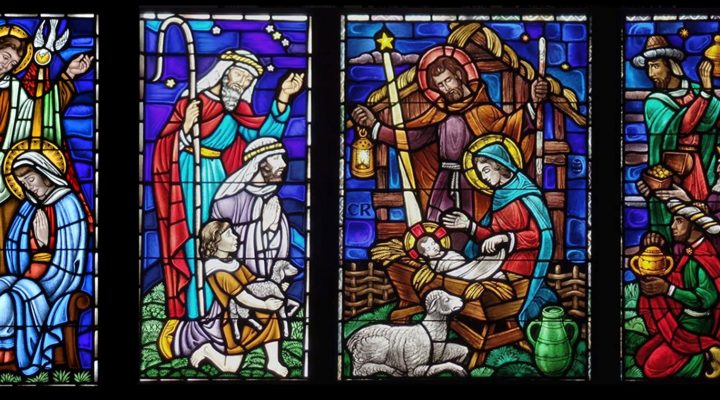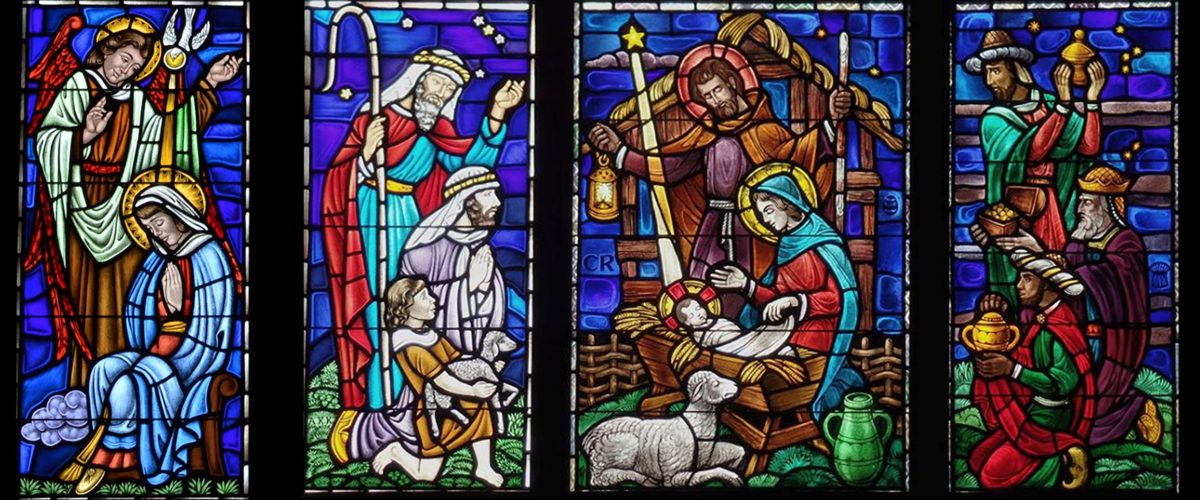BNG is pleased to partner with Baker Publishing Group and Perkins School of Theology at SMU to present a twice-weekly Advent reflection series written by Jack Levison. The reflections will be published every Tuesday and Thursday throughout the season.
An economy of words opens to the divine economy in Matthew’s Gospel. The spirit may not rush or clothe or pour or rest, as the spirit does throughout the Jewish Scriptures. The spirit may not fill the faithful, as in the book of Acts. Yet in a measured and meaningful way, the spirit evokes the entire sweep of Israel’s history — creation, exodus, kingship — in spare but significant words, genesis and from holy spirit.
Luke’s Gospel is less tidy when it comes to the Spirit. Less spare. Certainly less measured, more unkempt, altogether imbalanced. Praise gushes untrammeled in the wake of bewilderment, Zechariah’s and Mary’s, both.
If the Holy Spirit appears in only one scene, though a notable and puzzling one, in the Gospel of Matthew, in the Gospel of Luke, that Spirit — yes, that Spirit, not a spirit, not at all — dominates the drama, from gestation to Jesus’ guest appearance as a young man in his hometown synagogue. This is no pedestrian drama. In this Gospel, before Jesus sees the light of day, the Holy Spirit is hard at work, inspiring pregnancy, praise and promise.
“In this Gospel, before Jesus sees the light of day, the Holy Spirit is hard at work, inspiring pregnancy, praise and promise.”
John the Baptist is the first to fall prey to the Spirit’s power, not in the guise of something new but in the garb of something old. The angel’s predictions are bathed in the Jewish Scriptures:
For he (John) will be great in the sight of the Lord. He must never drink wine or strong drink; even from the womb of his mother he will be filled holy spirit. He will turn many of the people of Israel to the Lord their God. With the spirit and power of Elijah he will go before him, to turn the hearts of parents to their children, and the disobedient to the wisdom of the righteous, to make ready a people prepared for the Lord. (Luke 1:15-17)
Virtually every ingredient of this prediction enhances the prophetic character of John’s vocation. Like both the Israelite judge Samson (Judges 13:4-5) and the seer Samuel, who anointed David (1 Samuel 1:9-15), the Baptist will abstain from wine. Like the famed prophet Jeremiah, the Baptist will be set apart before birth (Luke 1:15). Living in “the spirit and power of Elijah,” the Baptist will follow in the steps of Elisha, who received a double portion of Elijah’s spirit when his mentor ascended in a chariot of fire (2 Kings 2:9-15). And his ability to “turn the hearts of parents to their children” will identify him as Elijah returned; this, at least, is what the prophet Malachi had predicted in what are the last words of the last prophet in the Old Testament: “Lo, I will send you the prophet Elijah before the great and terrible day of the LORD comes. He will turn the hearts of parents to their children and the hearts of children to their parents, so that I will not come and strike the land with a curse” (Malachi 4:5-6).
Finally, the angel’s last words to Zechariah, “to make ready a people prepared for the Lord,” are the ones that stuck. They appear, in one form or another, in each of the four Gospels. Like so much in the angelic announcement, they, too, erupt from the Old Testament — the great paean of Isaiah 40, to be exact: “A voice of one crying out in the wilderness: ‘Prepare the way of the Lord; make straight the paths of our God.’”
Extract the Old Testament phrases from the angel’s announcement, and you have virtually nothing left. No threads. No fabric. Nothing. And at the heart of this announcement? The Spirit. Before birth, the Baptist will be filled with the Spirit. He will live in the spirit and power of Elijah — the grand stream of the prophetic Spirit.
The Gospel of Luke dispels the myth that the Holy Spirit was not at work until Pentecost, until the birth of Christianity. These were not Christians who received the Spirit; these were Jews, the first to play a role in the story of Jesus, who was yet another in a line of Jews filled with the Spirit.
“We should hardly be surprised that the Spirit erupts months before Jesus’ birth or years before Pentecost.”
We should hardly be surprised that the Spirit erupts months before Jesus’ birth or years before Pentecost. These are faithful people. Good people. What someone in the American South might call God-fearing men and women. Zechariah and Elizabeth, long in the tooth but childless, were not, for that reason, willing to shirk the disciplines of faith; they were both “righteous before God, living blamelessly according to all the commandments and regulations of the Lord” (Luke 1:6).
Even after the angel had spoken and chastised him with speechlessness for not believing on the spot — in a moment of ill-founded unfaith, Zechariah happened to raise the problem of their age to the angel Gabriel — Zechariah continued to serve in the temple. Only “when his time of service was ended,” and not a moment before, did he go “to his home.” No excuses for the old man, no eluding the necessary work of the righteous, no shirking or skulking away from daily trudges to the temple.
And they might have, the old couple, found a reason to give up on God. Their barrenness had cost them dearly in a culture that prized the production of heirs. Even now, with a surge of melancholy, Elizabeth, after hearing about the angelic promise, would say only this, that we know of, in five months of seclusion: “This is what the Lord has done for me when he looked favorably on me and took away the disgrace I have endured among my people” (Luke 1:24-25).
God did not just look favorably. God also took away disgrace. Disgrace is not yet forgotten but lingers in the shadow of grace.
 Jack Levison holds the W.J.A. Power Chair of Old Testament Interpretation and Biblical Hebrew at Perkins School of Theology at Southern Methodist University. He is known for his groundbreaking work on the Holy Spirit and topics both biblical and theological. This column is excerpted from his book An Unconventional God. Used here with permission of Baker Publishing, © 2020.
Jack Levison holds the W.J.A. Power Chair of Old Testament Interpretation and Biblical Hebrew at Perkins School of Theology at Southern Methodist University. He is known for his groundbreaking work on the Holy Spirit and topics both biblical and theological. This column is excerpted from his book An Unconventional God. Used here with permission of Baker Publishing, © 2020.
Also in this Advent series:
Advent reflection: An infinity of grace


